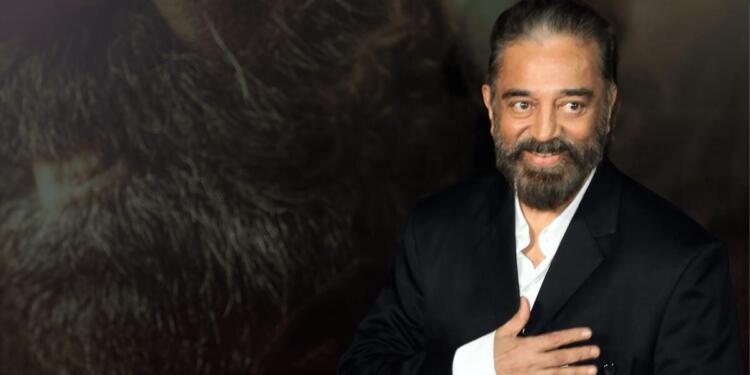Actor and political figure Kamal Haasan has sought to calm the storm surrounding his recent remarks about the Kannada language, which have stirred widespread controversy across Karnataka. In a letter to the Karnataka Film Chamber of Commerce, Haasan expressed regret that his statement had been “misunderstood and taken out of context,” emphasizing that he never intended to diminish the importance of the Kannada language or hurt the sentiments of its speakers.
The controversy erupted following Haasan’s appearance at the Thug Life audio launch, where he made a remark suggesting a linguistic link between Tamil and Kannada. The statement sparked backlash from Kannada groups, film industry voices, and even prompted legal scrutiny.
Addressing his letter to Chamber President Narasimhalu, Haasan wrote that his words were spoken “out of genuine affection for the legendary Dr. Rajkumar’s family, especially Shiva Rajkumar,” and were meant to convey unity, not offense. He stated that he wanted to highlight that “we are all one and from the same family,” and stressed there was “no dispute or debate on the rich legacy of Kannada language.”
Haasan reiterated his long-standing admiration for Kannada, describing it as a language with a “proud literary and cultural tradition” that he has “long admired.” Reflecting on his own experiences, he added that he had “cherished the warmth and affection extended to me by the Kannada-speaking community” throughout his career.
“I say this with a clear conscience and conviction,” he wrote, “my love for the language is genuine, and I have great respect for the love that Kannadigas have for their mother tongue.”
The actor, who has often spoken out against linguistic hegemony, reinforced that he stands for the “equal dignity of all Indian languages” and remains “opposed to the dominance of any one language over another,” warning that such an imbalance “undermines the linguistic fabric of the Union of India.”
Haasan also acknowledged the discomfort his statement may have caused to actor Shiva Rajkumar, who was present at the event and has faced questions since. “I really regret that Shivanna had to go through such embarrassment on account of this,” Haasan noted, but added that he believes their mutual respect “will always remain and get firmer now.”
He emphasized that the intent behind his words was rooted in the spirit of cinema itself — something he called a “universal language that knows only love and bonding.” According to Haasan, “cinema must remain a bridge between people, never a wall that divides them.” He said that the sentiment he expressed was meant to strengthen the bond between communities, not divide them.
Concluding his letter, Haasan expressed hope that his words would be “received in the spirit they were intended” and that his “enduring affection for Karnataka, its people, and their language” would be recognized. He said he believed the current misunderstanding was “temporary” and could serve as a reminder of the “mutual love and respect” shared between Tamil and Kannada communities.
Political and Legal Tensions Escalate
The clarification comes as Haasan faces legal heat over his comments. He has filed a petition in the Karnataka High Court seeking police protection, citing threats received in the aftermath of the controversy. The court, however, took a firm stance, questioning why the state should provide security for a statement that appeared to provoke unrest. It asked the actor whether he was willing to publicly apologize and set a deadline for his response.
The issue has reignited debates over linguistic pride and regional identity, particularly in South India, where languages are not only cultural symbols but also deeply political. Haasan’s comment, interpreted by many as a claim that Kannada is derived from Tamil, touched a nerve in Karnataka, where language pride is closely tied to state identity and historical autonomy.
While some have called the backlash excessive, others see it as a necessary defense of linguistic integrity.
























